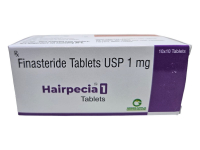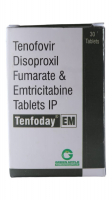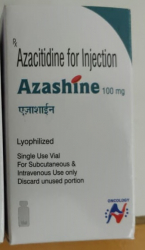


Azacitidine
Azacitidine Uses
This medication is used to treat a group of blood/bone marrow disorders (myelodysplastic syndromes-MDS) in which the bone marrow does not produce enough healthy blood cells. People with MDS usually have problems such as infections, anemia, and easy bleeding/bruising. Azacitidine is a chemotherapy drug. It is believed to work by helping your bone marrow grow normal blood cells so you will need fewer blood transfusions. Azacitidine also kills abnormal blood cells that have grown too fast and do not work properly.
How to use Azacitidine Vial
This medication is given by injection under the skin or into a vein by a health care professional.
If you are receiving the injection under the skin, your health care professional will change the injection site each time to lessen injury under the skin.
This medication is injected as directed by your doctor, usually once a day for 7 days in a row. A 7-day course of this medication is called a cycle. This cycle is repeated every 4 weeks depending on your response and blood tests.
The dosage is based on your medical condition, body size, lab tests, and response to treatment. Keep all medical/lab appointments.
Azacitidine Side Effects
Redness/pain/bruising at the injection site, tiredness, diarrhea, dizziness, trouble sleeping, constipation, nausea, vomiting, mouth sores, dry skin, headache, and loss of appetite may occur. Nausea and vomiting can be severe. In some cases, your doctor may prescribe medication to prevent or relieve nausea and vomiting. Eating several small meals, not eating before treatment, or limiting activity may help lessen some of these effects. If these effects last or worsen, tell your doctor or pharmacist promptly.
People using this medication may have serious side effects. However, your doctor has prescribed this drug because he or she has judged that the benefit to you is greater than the risk of side effects. Careful monitoring by your doctor may decrease your risk.
Tell your doctor right away if you have any serious side effects, including: easy bleeding/bruising, chest pain, muscle/joint pain, muscle cramps, irregular heartbeat, mental/mood changes (such as anxiety), dark urine, yellowing eyes/skin.
This medication may lower your ability to fight infections. This may make you more likely to get a serious (rarely fatal) infection or make any infection you have worse. Tell your doctor right away if you have any signs of infection (such as sore throat that doesn't go away, fever, chills, cough).
Azacitidine sometimes causes side effects due to the rapid destruction of cancer cells (tumor lysis syndrome). To lower your risk, your doctor may add a medication and tell you to drink plenty of fluids. Tell your doctor right away if you have symptoms such as: low back/side pain (flank pain), signs of kidney problems (such as painful urination, pink/bloody urine, change in the amount of urine), muscle spasms/weakness.
A very serious allergic reaction to this drug is rare. However, get medical help right away if you notice any symptoms of a serious allergic reaction, including: rash, itching/swelling (especially of the face/tongue/throat), severe dizziness, trouble breathing.
This is not a complete list of possible side effects. If you notice other effects not listed above, contact your doctor or pharmacist.
Azacitidine Precautions
Before using azacitidine, tell your doctor or pharmacist if you are allergic to it; or if you have any other allergies. This product may contain inactive ingredients (such as mannitol), which can cause allergic reactions or other problems. Talk to your pharmacist for more details.
Before using this medication, tell your doctor or pharmacist your medical history, especially of: kidney disease, liver disease (including cancer).
Do not have immunizations/vaccinations without the consent of your doctor, and avoid contact with people who have recently received oral polio vaccine or flu vaccine inhaled through the nose. Wash your hands well to prevent the spread of infections.
To lower your risk of getting cut, bruised, or injured, use caution with sharp objects like razors and nail cutters, and avoid activities such as contact sports.
This drug may make you dizzy. Alcohol or marijuana (cannabis) can make you more dizzy. Do not drive, use machinery, or do anything that needs alertness until you can do it safely. Limit alcoholic beverages. Talk to your doctor if you are using marijuana (cannabis).
Tell your doctor if you are pregnant or plan to become pregnant. You should not become pregnant while using azacitidine. Azacitidine may harm an unborn baby. Men with female partners of childbearing age should use reliable forms of birth control while using this medication and for 3 months after stopping treatment. Women of childbearing age should ask about reliable forms of birth control while using this medication and for 6 months after stopping treatment. If you become pregnant, talk to your doctor right away about the risks and benefits of this medication.
It is unknown if this drug passes into breast milk. Because of the possible risk to the infant, breast-feeding while using this drug and for 1 week after stopping treatment is not recommended. Consult your doctor before breast-feeding.
Azacitidine Interactions
Drug interactions may change how your medications work or increase your risk for serious side effects. This document does not contain all possible drug interactions. Keep a list of all the products you use (including prescription/nonprescription drugs and herbal products) and share it with your doctor and pharmacist. Do not start, stop, or change the dosage of any medicines without your doctor's approval.
Note: We strongly encourage you to talk with your health care professional about your specific medical condition and treatments. The information contained in this website is meant to be helpful and educational, but is not a substitute for medical advice.
Azacitidine View Uses, Side Effects and Medicines, cost, Azacitidine price.

















